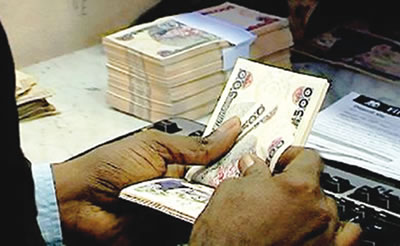Economy
Investment Inflow To Nigeria Drops To 10-Year Low
The Nigerian economy recorded its worst investment inflow in 10 years with the country attracting a total investment of $5.12bn in the 2016 fiscal period.
The $5.12bn investment figure, when compared to the $9.64bn that the economy attracted in 2015, represents a decline of $4.52bn or 46.86 per cent.
The decline was confirmed in the Capital Importation Report, which was released on Wednesday by the National Bureau of Statistics.
There are three major categories of investment that make up the total investment inflow into the country. They are portfolio investment, which attracted $1.81bn in 2016; foreign direct investment, which attracted $1.04bn; and $2.26bn in other investments.
The bureau explained in the report that investor apathy about the Nigerian economy was symptomatic of the economic crisis currently being experienced in the country.
For instance, it said that the weak value of the naira was one of the reasons for the low investment inflow into the country, adding that this affected the level of portfolio investment negatively.
The report stated, “The total value of capital imported into Nigeria in the fourth quarter of 2016 was estimated to be $1.54bn, which represents a decrease of 15 percent relative to the third quarter, and a fall of 0.52 percent relative to the fourth quarter of 2015.
“The level of capital imported was similar in each month of the quarter, but the highest was in December at $555.37m. In the year 2016, capital importation fell by 46.86 per cent from $9.64bn in 2015 to $5.12bn.
“This was the lowest value since the series started in 2007, which reflects the numerous economic challenges that afflicted Nigeria in 2016. The weakening of the naira may have had an impact, as a weaker naira means more can be purchased with each dollar and, therefore, investment projects requiring naira payments cost less in dollar terms.”
The report stated that portfolio investment was the most badly affected investment class in 2016 as it recorded a decline of 69.81 per cent owing to the current market conditions.
It stated that foreign direct investment followed with a decline of 27.83 percent last year.
However, the report stated that other investments recorded a marginal increase of 3.48 percent, adding that the increase in loans was a major reason for the rise.
In terms of country of origin of the investment inflows, the report stated that the country from which Nigeria imported by far the most capital was the United Kingdom, which accounted for $482.89m or 31.18 percent of the total.
It added that since 2010, the UK had accounted for the highest value of capital importation to Nigeria.
This was followed by the Netherlands, which accounted for $296.52m, or 19.14 percent of the total.
Follow us on social media:-

 Celebrity Gossip & Gist2 days ago
Celebrity Gossip & Gist2 days ago“The money wey dem pay me don expire” – Moment Burna Boy stops his performance at the Oando PLC end of the year party (Video)
-

 Economy2 days ago
Economy2 days agoGoods worth millions of naira destroyed as fire guts spare parts market in Ibadan
-

 Celebrity Gossip & Gist20 hours ago
Celebrity Gossip & Gist20 hours agoMoment stage collapses on Odumodublvck during concert performance (Video)
-

 Economy19 hours ago
Economy19 hours agoPresident Tinubu cancels Lagos engagements in honor of food stampede victims





